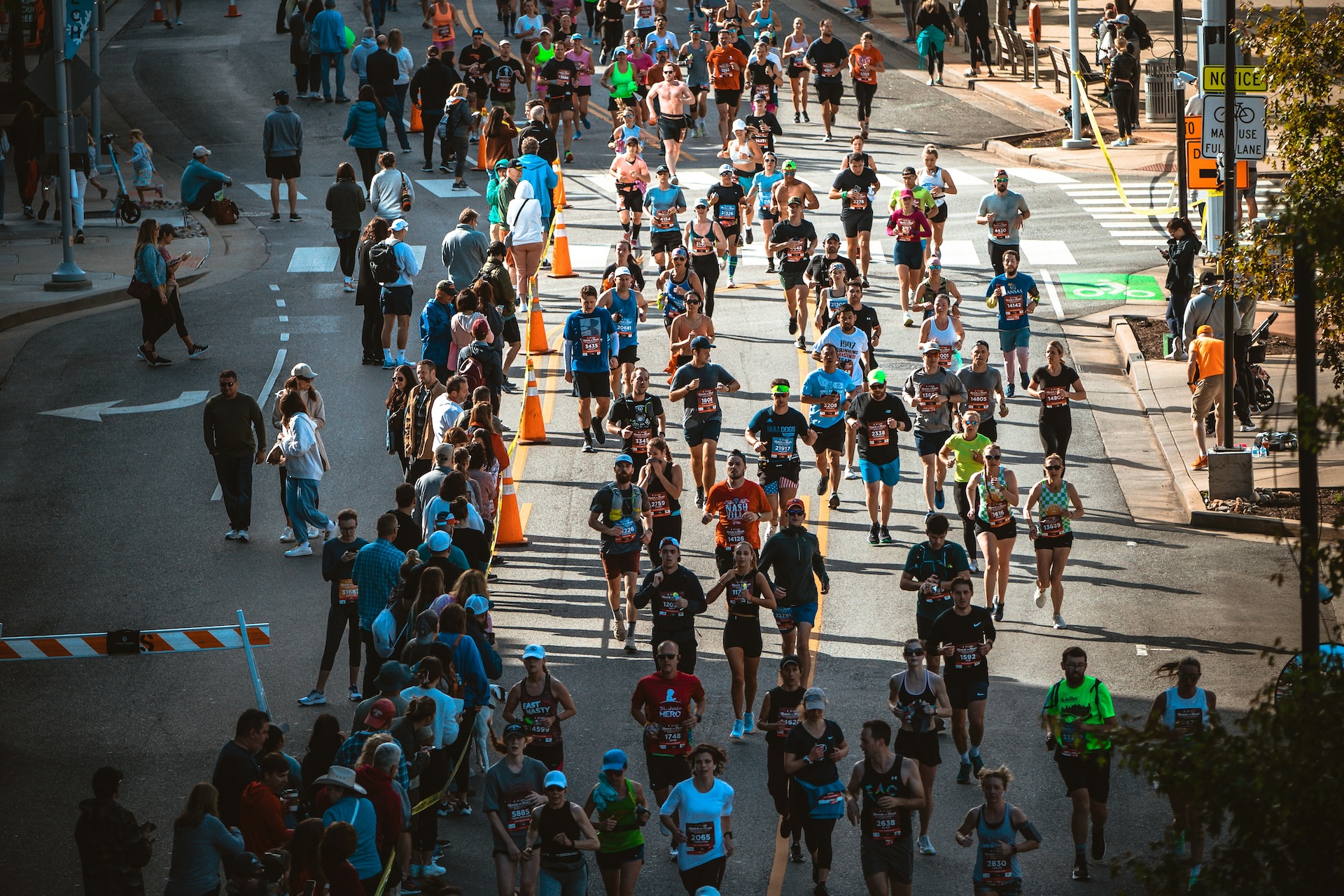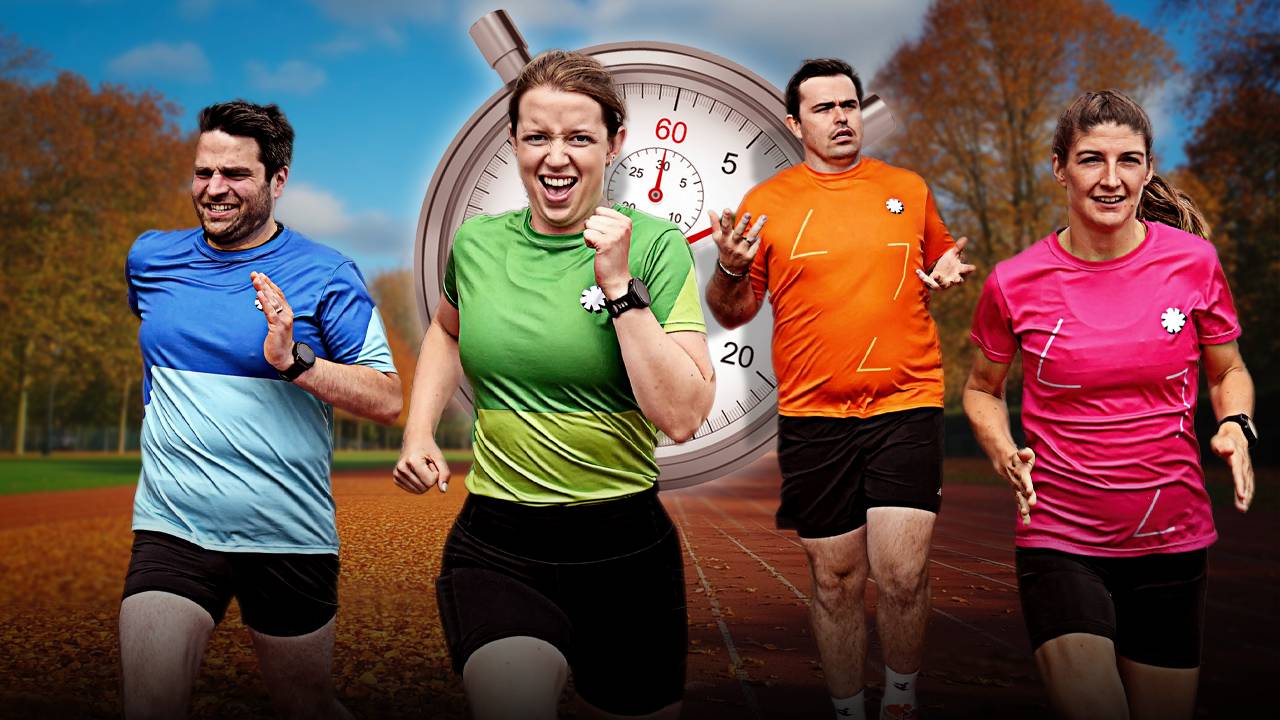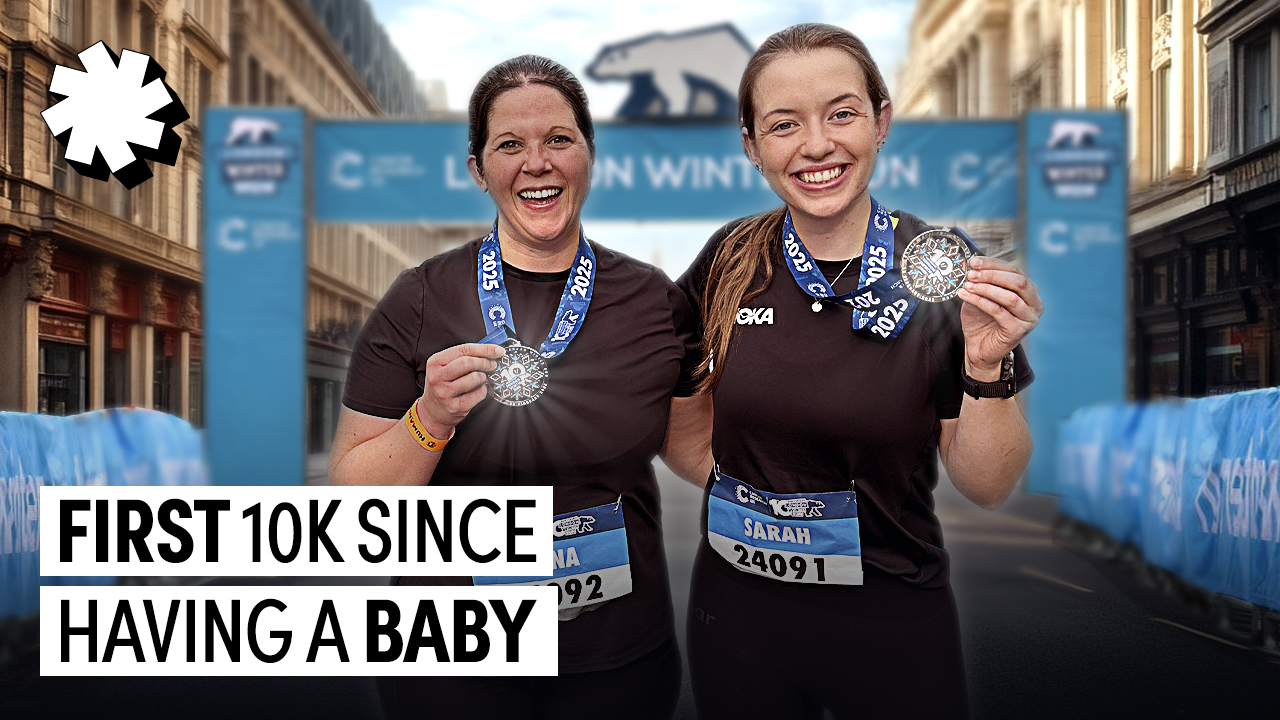Mistakes To Avoid When Running A Marathon

You’ve all heard ‘nothing new on race day’, but a marathon is a long race, and sometimes things don’t go exactly to plan during your marathon.
As a team, we’ve faced all of these problems, and made all these mistakes, so you don’t have to!
TAKE IT EASY THE DAY BEFORE THE RACE
Don’t spend the day before your race doing lots of activities. If you’ve travelled somewhere for race day then it can be especially tempting to walk around lots, but don’t. You’ve trained for months, and today is the day to be as lazy as possible! You may experience lots of strange thoughts and feelings the day before a marathon – you don’t feel ready, you feel full of carbs, your legs ache even though you’re tapered and haven’t run – but stay positive because tomorrow everything will come together just right (these do’s and don’ts of tapering might help!).
CONTROL CONTROLLABLES, EMBRACE RACE CHAOS
This is another one of those often-repeated things (well, control the controllable is, anyway), but it can help you to feel more prepared ahead of the race. Know the things you’ll need on race day, lay out your kit (and make sure the kit is suitable to the weather), pack your drop bag with clothes and food you might want after the race, tell friends and family where to go. If you know you’ll want five gels in the race, take six just in case. Pack toilet paper in your drop bag. And then on race day, embrace the fact that anything can happen.
NOTHING NEW ON RACE DAY
We know you’ve heard this one, but it’s really important. Don’t do or try anything new on race day. Don’t wear new shoes, don’t wear kit you’ve never tried before, don’t wear brand new socks that haven’t been washed (honestly, they can slide in your shoe and cause blisters!), don’t try new foods or drinks in the morning or on the course. An essential part of your marathon training is testing everything from your kit to your nutrition so you’re comfortable with it on race day. If in doubt, don’t!
DEAL WITH PROBLEMS WHEN THEY HAPPEN
If you start to feel some chafing, or your shoelace comes undone, or you get a stone stuck in your shoe (either inside or in a cutout on the sole), then stop, take a few seconds to deal with it, then carry on. If you don’t deal with it then it could cause you much more discomfort later in the race, or could even make you run with different stride to normal, which could cause you an injury.
STOP IF YOU NEED THE TOILET (BUT DON’T SPRINT TO MAKE UP THE TIME)
If you need to go, go! The minute it takes for you to stop and run into a portaloo on the course could save you many more minutes later in the race if you continue to run through the discomfort. And if you stop, don’t be tempted to try and sprint to make that time back up. Just carry on at your goal pace and if you’re feeling good later in the race then try and increase your speed.
RESPECT THE CONDITIONS
The marathon doesn’t care that you’d love to run on an overcast day with no breeze and cool temperatures. You stand on the start line and take the weather you’ve been given. If it’s very windy or very hot, then you need to adjust your goals – at least for the first half of the race. Just because you trained to run for a certain time, you have to respect the weather on the day. This is especially true on very hot days, where marathons typically see the most DNFs and the highest number of medical issues from runners who try too hard and suffer. Take the race easier and if you’re feeling good then you can push on later in the race.
BE REALISTIC ON RACE DAY
Let’s say that four months ago you had the goal of running a sub-four marathon. But if your training hasn’t gone to plan, and you haven’t been able to do all the workouts or long runs that you needed, then don’t start your marathon at sub-four pace because it probably isn’t realistic. In the final two weeks before your race, you should have a good idea of the time that you can honestly achieve.
DRINK WATER WHEN YOU CAN (BUT DON’T WORRY IF YOU MISS A WATER STATION)
Even if you don’t feel thirsty, take on water early and often in your race (no need to chug it, but sip it when you get the chance). Try and get water from every water station (in most races there’s one every 1-3 miles), but if you miss one then don’t worry because another one will be coming up soon. Sometimes water stations can be busy, so also be careful: slow down, take your time, but watch out for other runners if you move across the course, or if you like to walk through a water station.
DON’T TRY TO BANK TIME
If you’ve got a goal time in mind, then you should know what your pace should be for each kilometre or mile. Try to stick close to that pace but don’t push too hard to get certain numbers, and don’t speed up at the end of each mile or kilometre to try and hit splits – this isn’t a fartlek race, so keep your pace controlled and consistent. In the first 10km, being slightly slower than your goal time is better than being slightly faster – banking time doesn’t work as well as banking energy to use later.
TRUST THE COURSE MARKINGS OVER YOUR GPS
All marathons should be accurately measured, with distance markers out on the route (every km or mile). Your gps is not always accurate, and it’s inevitable that you add some extra distance while running, so trust the distance makers over your watch to help you know a more accurate measure of your pace. You could manually lap your watch every km, mile or 5km based on course markings to get the most accurate measure.
ENJOY YOURSELF & STAY POSITIVE!
There’s a saying that the marathon is your victory lap from the months of training you’ve put in, and that’s a nice way of thinking about it. Whether you’re there to race for a time or just to complete the distance, try and enjoy the experience: enjoy the course, the sights, the crowds, the music along the way. Related to this: stay positive. There are always highs and lows in a marathon, but do your best to keep a positive mindset throughout.
SMILE AT THE FINISH LINE!
You want to get a good race photo, so no matter how you’re feeling, make sure you’re smiling as you cross the finish line. Look out for the on-course photographers as well and give them your best smile.
REHYDRATE AND REFUEL
The race is over but there’s still a few things to think about… You need to start drinking water, and ideally some electrolytes, soon after you finish to rehydrate. It’s also important to take in fuel. Lots of people feel like they can’t eat for a while after running a marathon, so try liquid foods like milkshake or something like Huel. Make sure you get carbs and protein in as this is going to help you recover, both in the short term (so you can go and celebrate later!) and in the aches you’ll feel the next day.
CELEBRATE!
You’ve done it! Marathons take months of dedication and hard work, and the race is the final part of that long and hopefully rewarding process. However the race went, you should celebrate your achievements.
***
Do you have any top tips for things to do or avoid doing on race day?
Photo by Chad Stembridge on Unsplash



























Running News
Will A Woman Run A Four-Minute Mile? Research Says It’s Possible
Tadese Takele And Sutume Asefa Kebede Win The 2025 Tokyo Marathon!
Boston Marathon 2025 Medal Reveal And Celebration Jacket